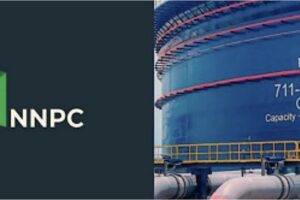Mr. Wale Edun, The Minister of Finance and Coordinating Minister of the Economy, has responded to critics who doubted the functionality and success of the Dangote Refinery. In a public address, Wale Edun remarked, “They say it couldn’t be done, they say he couldn’t do it, that we couldn’t produce PMS in this refinery,” directly referring to the skepticism that surrounded the project. He noted that despite the doubts, the refinery has become a reality, a testament to Nigeria’s industrial potential and resilience.
Wale Edun’s remarks reflect the significance of the Dangote Refinery in reshaping Nigeria’s energy sector. The project, which had faced delays and criticism during its development, now stands as one of the largest refineries in Africa. The Minister emphasized that the refinery’s success is a milestone that demonstrates the nation’s ability to reduce its dependence on imported fuel, thus improving the balance of trade and strengthening the economy.
A Landmark Achievement: Dangote’s Vision Comes to Life
In his congratulatory message to Aliko Dangote, Mr. Edun hailed the entrepreneur’s perseverance and foresight, stating that Dangote’s unwavering commitment has culminated in the refinery’s eventual completion. The refinery, capable of producing Premium Motor Spirit (PMS) domestically, is expected to meet the fuel needs of Nigeria, reducing the country’s reliance on foreign imports. This achievement is a significant step forward for Nigeria’s economy, contributing to national energy security and job creation.
Wale Edun also highlighted how the successful launch of the refinery proves that private-sector investment is key to driving economic growth. The refinery, which had been met with skepticism for its scale and ambition, is now positioned to transform Nigeria into a major player in the global oil and gas market.
Critics Doubted the Feasibility of the Refinery
The Dangote Refinery faced heavy criticism and doubt throughout its construction phase, with many experts and industry observers claiming that the project was too ambitious to succeed. Critics questioned whether the refinery would ever be completed, citing the size, complexity, and the history of delays in Nigeria’s refinery projects. Some doubters went as far as to say that the country lacked the necessary infrastructure and policy environment to support such a massive industrial initiative.
However, with the refinery now fully operational, these critics have been proven wrong. The ability of the Dangote Group to overcome logistical challenges, secure the necessary funding, and navigate complex regulatory landscapes has demonstrated that large-scale industrial projects can indeed be successful in Nigeria.
Economic Implications of the Dangote Refinery
Mr. Wale Edun emphasized the broader economic impact of the refinery’s success, noting that it aligns with the government’s vision for economic diversification and development. The ability to refine PMS domestically is expected to save Nigeria billions of dollars in foreign exchange, which was previously spent on importing refined petroleum products. This shift is expected to stabilize fuel prices and improve energy security in the country, providing relief to both consumers and businesses.
Additionally, the refinery is expected to create thousands of direct and indirect jobs, further stimulating economic growth. Wale Edun pointed out that such large-scale projects are necessary to bridge the unemployment gap and foster industrialization in key sectors of the Nigerian economy.
Dangote’s Contribution to Nigeria’s Industrial Development
Aliko Dangote’s contribution to Nigeria’s industrial landscape extends beyond the refinery. Over the years, he has made significant investments in various sectors, including cement, sugar, and agriculture. The Dangote Refinery is the latest in a series of projects that solidify his status as a key driver of Nigeria’s economic transformation. Minister Wale Edun acknowledged this contribution, stating that Dangote’s ventures serve as a blueprint for other private investors looking to invest in the country.
Wale Edun also underscored the importance of public-private partnerships in accelerating industrial growth. He called on more Nigerian entrepreneurs to follow Dangote’s lead by investing in local manufacturing and production, thereby reducing Nigeria’s dependence on imports and enhancing its competitive edge in the global market.
The Future of Nigeria’s Energy Sector
With the successful commissioning of the Dangote Refinery, Mr. Wale Edun expressed optimism about the future of Nigeria’s energy sector. He noted that the refinery’s output would not only meet the domestic demand for fuel but could also position Nigeria as a net exporter of refined petroleum products. This development, according to Wale Edun, would mark a historic turnaround in Nigeria’s oil and gas industry, which has long been marred by inefficiencies and import dependency.
As the refinery ramps up its production, the benefits are expected to trickle down to other sectors of the economy. From transportation to manufacturing, the availability of locally refined PMS is anticipated to reduce costs and improve business operations. The Minister concluded by reaffirming the government’s commitment to supporting private-sector-led growth and ensuring that projects like the Dangote Refinery continue to thrive.
Table of Contents
Discover more from OGM News NG
Subscribe to get the latest posts sent to your email.














